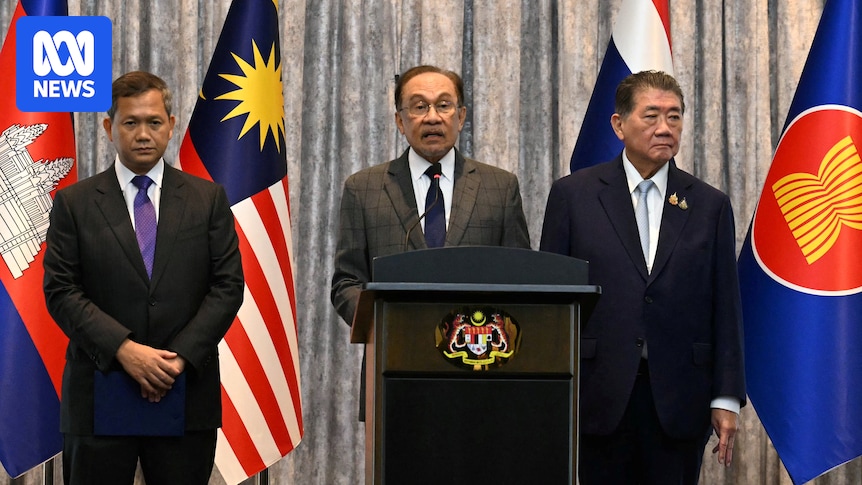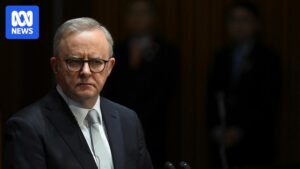
The leaders of Thailand and Cambodia have agreed to an immediate and unconditional ceasefire to halt their recent border clashes. This agreement was announced by Malaysian Prime Minister Anwar Ibrahim following intensive talks between the two Southeast Asian nations.
“Both Cambodia and Thailand reached a common understanding as follows: One, an immediate and unconditional ceasefire with effect from 24 hours local time, midnight on July 28, 2025, tonight,” Prime Minister Anwar stated after chairing the mediation talks in Malaysia. As the head of the ASEAN regional bloc, Anwar emphasized the commitment of both sides to take steps towards returning to normalcy.
Background of the Conflict
The conflict between Thailand and Cambodia has been a simmering issue, with tensions escalating into an armed clash that has claimed the lives of more than 10 civilians. The violence has forced many to flee their homes, seeking safety from the crossfire. Cambodian Prime Minister Hun Manet and Thailand’s Acting Prime Minister Phumtham Wechayachai expressed optimism about the ceasefire, shaking hands at the conclusion of a brief press conference.
A border summit is scheduled to be hosted by Cambodia on August 4, aiming to solidify the peace process. The recent fighting erupted in a disputed area on Thailand’s eastern border with Cambodia, with both nations accusing each other of initiating the conflict.
More than 30 people have been killed, and hundreds of thousands displaced, marking the deadliest clash between the two neighbors in over a decade.
International Reactions and Diplomatic Efforts
The ceasefire announcement follows direct pressure from international leaders, including a stern warning from United States President Donald Trump. He indicated that the US might reconsider trade deals with both countries if hostilities continued. Before the talks in Kuala Lumpur, Thailand’s Acting Prime Minister Phumtham Wechayachai mentioned that representatives from China and the US would attend the discussions as observers, highlighting the global concern over the regional stability.
Earlier, both countries recalled their ambassadors, and Thailand closed all border crossings with Cambodia, except for allowing migrant Cambodian workers to return home. The conflict has drawn attention from various international figures, including Pope Leo XIV, who expressed his prayers for those affected by the clashes.
ASEAN’s Role and Regional Implications
This conflict represents a rare instance of open military confrontation between ASEAN member states, a regional bloc known for its commitment to non-aggression and peaceful dialogue. In a statement, ASEAN foreign ministers voiced their concern over the rising death toll and the displacement of people along the disputed border areas.
The border dispute has historical roots, with tensions escalating since a Cambodian soldier was killed in a skirmish with Thai troops in May. The recent violence underscores the fragility of peace in the region and the importance of diplomatic engagement.
Voices from the Ground
At a relocation camp approximately 100 kilometers from the clash site at Ta Moan Temple, displaced residents like Phum Sokhorn, a 62-year-old farmer, expressed their desire for peace. “Staying here is miserable. We can’t make any income — we just wait for some little aid,” he said, urging Thailand to resolve the conflict through legal means at the International Court of Justice (ICJ).
Maly Socheata, spokeswoman for Cambodia’s Defence Ministry, reported that around 134,000 Cambodians have been displaced and 13 people killed in the five-day conflict.
The ceasefire agreement marks a significant step towards peace, but the road to lasting resolution remains complex. The upcoming border summit and continued diplomatic efforts will be crucial in ensuring the stability of the region. As both nations work towards rebuilding trust, the international community remains watchful, ready to support a peaceful outcome.





